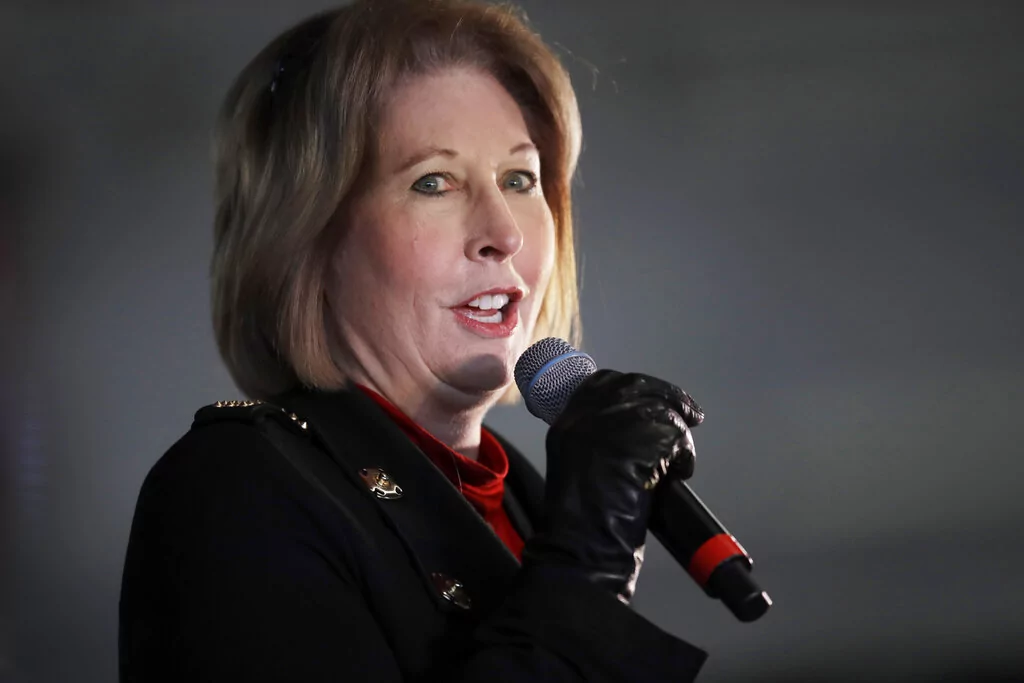

Former President Donald Trump and his campaign team aren’t letting the 2024 election get away from them. They are already putting contingency plans in place to challenge election results in states they lose, setting up a protracted battle to certify the winner and give officials a repeat of 2020.
Critics of the former president are saying his rhetoric about challenging results that don’t go his way before a single vote has been cast is sowing doubt about the legitimacy of whatever happens. Supporters are more concerned that after a string of losses and at least five lawyers losing their licenses to practice law, Trump might not have the sharpest attorneys at hand.
To prepare everyone for the expected drawn-out post-Election Day fight on the horizon, the Washington Examiner is publishing our Legal Games series, looking at the courtroom fights underlying the battles playing out at the ballot box.
This morning, Supreme Court Reporter Kaelan Deese is up with a look at the trouble Trump might have recruiting lawyers who are not only willing to make the case he is the rightful winner in contests that haven’t been decided but also have the skill to do so without angering the judge and put their license to practice law on the line in the process.
Trump doesn’t have a good record in court. Besides the slew of civil cases that have weighed on his campaign this year, he and his lawyers have faced a mountain of opposition spawned by their actions in the post-2020 legal fights they waged to prove, unsuccessfully, that he was the rightful winner instead of President Joe Biden.
“The fallout of more than 60 failed election challenges in 2020, coupled with indictments against him and his attorneys over attempts to insert so-called alternate electors to subvert his defeat, could ruin his chances to galvanize the legal talent needed to bring similar challenges this cycle,” Kaelan wrote.
Besides racking up a long list of losses the last time they tried to fight the results of an election, a handful of Trump’s top people have been booted from the legal profession because of their actions. Rudy Giuliani, John Eastman, Jenna Ellis, Sidney Powell, and Kenneth Chesebro have all had their licenses either permanently or temporarily suspended, a consequence up-and-coming lawyers might not be willing to countenance as the price of entry to an endeavor that has a poor track record.
“The result of all of that is that, yeah, there’s a lot of lawyers, very good lawyers, who will be very reluctant to represent the president no matter how valid his legal claims are,” Hans von Spakovsky, an attorney and former member of the Federal Election Commission, told Kaelan.
But history doesn’t have to repeat itself, even if it does rhyme sometimes.
There are at least two major differences between 2020 and the expected tussles coming in November.
- The COVID-19 voting rules scrambled the system and muddied the waters over what exactly some of the legal fights were about. Those rules have either been removed or clarified in the four years since the chaos of coronavirus.
- Lawyers ready to sign up for Trump saw the way 2020 went and can view it as a trial run. The blueprint has been laid out as a sort of proof of concept. With experience and ideas about what works and what doesn’t, lawyers in 2024 can refine their arguments to make their case in a way that is more likely to result in victory — and less likely to wind up with them licenseless.
At least, that’s how National Committeewoman of the Republican National Committee for California Harmeet Dhillon sees it.
“‘2024, in theory, should be a different landscape’ than the 2020 election, Dhillon said, noting last time there was far more litigation over election procedure rules related to the COVID-19 pandemic,” Kaelan wrote.
And those losses Trump has taken in civil court have been balanced out by a significant win at the Supreme Court. Road testing attorneys is no easy business, but going to the Supreme Court and securing your client a strong claim to presidential immunity is one way to prove your mettle.
Click here to read more about the battle within the battle to execute legal challenges to the 2024 results.
Minority report
Republicans have been bullish on their chances of winning over Latino voters in recent years, sapping Democrats of a key voting bloc that was feeling like it was taken for granted.
Biden won a majority of Latino voters, 64%, en route to beating Trump in 2020, but his sway with the bloc had begun to decline. A July report from the Pew Research Center showed registered Latino voters were split evenly on Biden and Trump, with 1 in 4 saying they were leaning toward supporting Robert F. Kennedy Jr.
Vice President Kamala Harris has come in at the top of the Democratic ticket and is working overtime to reverse those trends and pull the increasingly important bloc back to the left, Senate Reporter Samantha-Jo Roth wrote for us this morning.
“As National Hispanic Heritage Month begins, the Harris campaign is building on investments to reach Latino voters, announcing $3 million in spending on a Spanish-language radio effort and an organizing push in battleground states around baseball games and boxing matches,” Samantha-Jo wrote.
“The campaign added four Hispanic consultants to the team last week and are sending top surrogates and Latino leaders to battleground states to turn out support. They plan to organize around Mexican Independence Day, Sept. 16, in cities like Phoenix and Raleigh, while also attending sporting events and tailgates in key states like Michigan. They also started a WhatsApp channel,” she wrote.
Latino voters make up significant portions of the electorate in states neither Harris nor Trump can afford to lose. Latinos make up roughly 31% of the population in Arizona, nearly 29% in Nevada, and nearly 10% in North Carolina.
Democrats have struggled to convince working-class voters there is a home in the party for them. Harris is trying to bring those voters home, but despite her robust ground game in key states — she has 17 offices in Arizona with plans to open two more, and her team made 34,000 Spanish calls last month — Republicans are wising up about how to tap into both the working class and patriotic feelings among Latinos.
Sharp messaging from Trump’s team by rebranding their efforts from “Latinos for Trump” to “Latino Americans for Trump” helped appeal to voters’ sentiments that they are, in fact, Americans, too.
“When they changed the name, that was actually a very smart strategic messaging move because most of these voters that are moving to the right and provide the biggest opportunity for Republicans view themselves as fundamentally American,” Mike Madrid, a longtime Republican operative who is the co-founder of the Lincoln Project, told Samantha-Jo.
Trump is leading Harris in Arizona by 1.3 points and North Carolina by 0.4 points, according to the Real Clear Politics polling average of polls. Harris leads Trump by 1.2 points in Nevada.
Click here to read more about the fight to win over the all-important Latino vote in 2024.
New from us
The Left’s rhetorical blind spot
Atlanta data hub battle gives preview of strains on national power grids
Early voting underway as some states battle third-party legal challenges
In case you missed it
Trump isn’t letting another assassination attempt slow him down
Eric Adams doesn’t want you thinking about all the corruption investigations
Biden and Trump spoke on the phone after the latest assassination attempt
For your radar
Biden will participate in a briefing about the wildfire season at 11:15 a.m. before meeting with World Bank President Ajay Banga at 2:15 p.m.
Harris will sit down with reporters from the National Association of Black Journalists in Philadelphia, Pennsylvania, at 2:30 p.m.
Gov. Tim Walz (D-MN) will speak in Macon, Georgia, at 10 a.m. before heading to Asheville, North Carolina, for a rally at 6:30 p.m.
White House press secretary Karine Jean-Pierre will brief reporters at 1:30 p.m.
Trump will hold a town hall meeting in Flint, Michigan, at 7 p.m. with Gov. Sarah Huckabee Sanders (R-AR) hosting.
Sen. J.D. Vance (R-OH) will swing through Sparta, Michigan, at 1:30 p.m. and hit Eau Claire, Wisconsin, at 5:30 p.m. Eastern.





